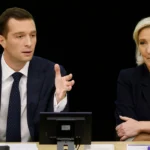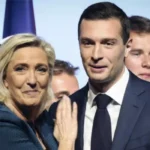The bans issued by the Russian government affect a large number of media outlets, from the written press to television. The German magazine Der Spiegel and the Italian public broadcaster RAI, for example, are blocked. Among the French media outlets, Le Monde, Libération, L’Express, La Croix, as well as the Arte, LCI and CNews channels, and Agence France Presse have been blocked by Moscow. Some media outlets, such as RFI, were already blocked in the Russian Federation. “Some of the sites mentioned in this list were already banned in Russia, including the RSF site. However, it is possible to create mirror sites with RSF to allow people in Russia to access the blocked media,” explains Jeanne Cavelier, the head of the Eastern Europe and Central Asia desk at Reporters Without Borders. A reaction to the ban on propaganda media in the European Union
Russian diplomacy had promised reprisals after the decision of the Council of the European Union to ban 4 Russian media outlets (Voice of Europe, RIA Novosti, Izvestia and Rossiyskaya Gazeta) considered to be relays of Kremlin propaganda. These “countermeasures” follow the “very painful” response promised by Russian diplomacy. “Once again, Russia is evoking a false symmetry by talking about “countermeasures” since the targeted Russian media outlets were not independent. Russia is putting independent media outlets and public propaganda media outlets on the same level, this is unacceptable,” recalls Jeanne Cavelier.
In response, the European Commissioner for Values and Transparency, Vera Jourova, proposes to broaden the scope of sanctions against Russia and to include “the ban on Russian financing of media outlets, NGOs and political parties in the EU”. Furthermore, journalists working for the various blocked media outlets should no longer be able to work in Russia. “It is not legally forbidden for journalists to travel to Russia. However, this list should be taken into account when refusing accreditations to journalists working for these media outlets,” notes Jeanne Cavelier. These accreditations, which are essential for working as journalists in Russia, are used to encourage self-censorship, as they must be renewed every three months with the administration.
This article is originally published on fr.news.yahoo.com






